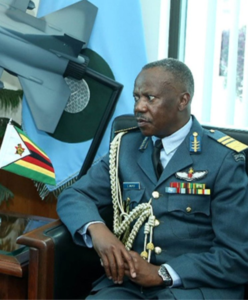TURMOIL IN THE OPPOSITION: CCC RIPPED APART BY FACTIONAL INTRIGUE

In a striking development that underscores the deep divisions within Zimbabwe’s opposition party, the Citizens Coalition for Change (CCC), factional strife continues to exacerbate tensions, threatening to undermine the party’s unity and effectiveness. At the heart of the turmoil is the self-proclaimed interim secretary-general, Sengezo Tshabangu, who, in a recent interview with the Voice of America (VOA), reaffirmed his position as the acting secretary-general amid the ongoing power struggles.
In an intriguing twist, Tshabangu expressed his support for the appointment of Welshman Ncube, Tendai Biti, and Karenyi Kore as interim co-leaders, who are to serve on a rotational basis. This move, seen by some as an attempt to foster unity and cohesion within the fractured party, has not been without its detractors. Promise Mkwananzi, steadfast in his belief that he remains the legitimate spokesperson for the CCC, has vocally rejected the concept of rotational leadership. Instead, Mkwananzi champions Jameson Timba as the party’s true interim leader, further complicating the already muddled leadership landscape.
The CCC, once a beacon of hope for many Zimbabweans yearning for political change, now finds itself embroiled in a bitter internal conflict. The factional battles are not merely about personal egos but have significant implications for the party’s future direction, strategy, and credibility. As the infighting intensifies, analysts warn of the potential for these disputes to escalate, potentially derailing the opposition’s efforts to present a united front against the ruling party.
One of the critical aspects of this power struggle is the fight for control over the party’s finances. With substantial funding at stake under the Political Parties (Finance) Act, the various factions within the CCC are eager to assert their dominance and secure access to these resources. This financial dimension adds another layer of complexity to the conflict, as control over party funds can significantly influence the balance of power within the organization.
Observers note that the ongoing squabbles reflect broader issues of leadership and vision within the CCC. The party, which emerged as a significant challenger to Zimbabwe’s long-entrenched ruling party, is at a crossroads. The leadership crisis threatens to distract from its core mission of advocating for democratic reforms and addressing the myriad challenges facing Zimbabweans.
As the CCC grapples with these internal divisions, the question of how it can overcome these hurdles and reforge a cohesive and effective opposition movement remains open. The resolution of this leadership crisis is crucial not only for the party’s survival but also for the broader democratic aspirations of many Zimbabweans. With national elections on the horizon, the stakes could not be higher.
The unfolding drama within the CCC serves as a stark reminder of the challenges facing opposition movements in authoritarian contexts. Navigating the treacherous waters of internal politics, while also confronting an entrenched and often repressive ruling regime, requires a delicate balance of unity, strategy, and vision. As the CCC continues to struggle with its internal demons, the future of Zimbabwe’s opposition movement hangs in the balance, watched closely by friends and foes alike.
In the end, the saga of the CCC’s factional battles is more than just a story of political intrigue; it is a test of the party’s resilience and commitment to the principles of democracy and change. How it responds to these challenges will define not only its future but also the prospects for a more democratic Zimbabwe.




Despite the challenges posed by the current leadership disputes, this moment also presents an opportunity for reconciliation and renewal within the CCC. By addressing the root causes of the conflict and working towards a genuine resolution, the party can emerge stronger and more unified, better equipped to advocate for change.
The factional strife within the CCC underscores the fragile state of opposition politics in Zimbabwe. At a time when the country desperately needs a strong and united opposition to push for democratic changes, the infighting within the CCC only serves to weaken the collective effort against authoritarian tendencies. The party must prioritize its commitment to democracy and the well-being of the Zimbabwean people over individual ambitions.
The current leadership disputes within the CCC highlight the critical importance of unity and cohesive leadership in opposition politics. For the CCC to effectively challenge the status quo and advocate for democratic reforms, it must first address its internal conflicts and present a united front. The ongoing factional battles detract from the party’s primary mission and risk alienating supporters.
The struggle for control over the party’s finances highlights the need for greater transparency and accountability within the CCC. Effective governance and the ethical management of resources are essential for maintaining the trust and support of party members and the general public. Establishing clear financial oversight mechanisms is crucial for preventing corruption and ensuring that resources are used in alignment with the party’s goals.